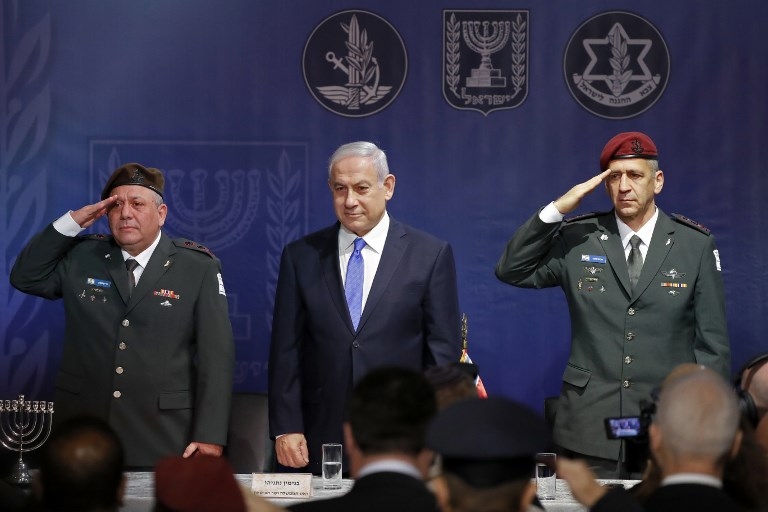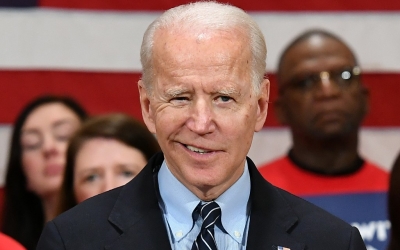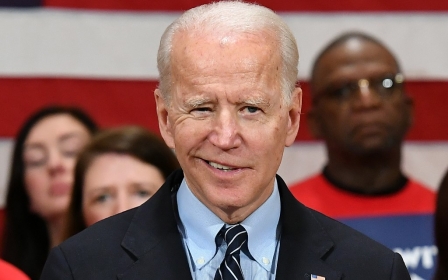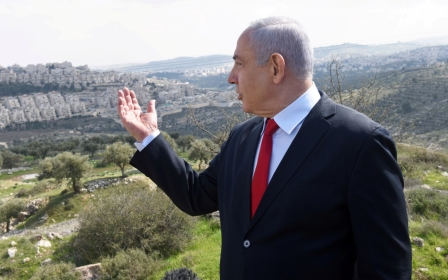Israeli army chief 'preparing for violence' as Netanyahu reaffirms annexation

Israeli Army Chief of Staff Aviv Kochavi issued an alert to army commanders over possible violence in the occupied territories earlier this week after Prime Minister Benjamin Netanyahu again confirmed his plan to annex parts of the occupied West Bank, according to the Israeli media.
At a meeting of legislators of his Likud party on Monday, Netanyahu reaffirmed his intention to annex some illegal settlements and the Jordan Valley as early as 1 July, describing it as an "historic opportunity".
“We have a target date and we won’t change it,” declared the prime minister.
'We have a target date and we won’t change it'
- Benjamin Netanyahu
Haaretz newspaper reported that the army had explained that it was usual for the chief of staff to instruct the military to be prepared, given that escalation was a likely scenario.
Kochavi’s words related more to the West Bank than the besieged Gaza Strip, the daily said.
New MEE newsletter: Jerusalem Dispatch
Sign up to get the latest insights and analysis on Israel-Palestine, alongside Turkey Unpacked and other MEE newsletters
Haaretz said the plan includes a significant reinforcement of forces in the West Bank and that Kochavi held another meeting on Monday, in which various possible scenarios were discussed.
Significant break
On Friday, the Palestinian Authority (PA) began implementing its announcement to end all agreements and understandings with Israel and the United States, including those on security, as a result of Israel's annexation plans.
The Arab48 news website quoted Israeli sources as saying that Palestinian security forces withdrew from the town of Abu Dis, near Jerusalem, on Friday morning.
On Thursday, Saeb Erekat, secretary general of the Palestine Liberation Organisation, said the Palestinians had suspended contacts with the CIA following Palestinian President Mahmoud Abbas's announcement on Tuesday to end the agreements.
Israel's planned annexation of the Jordan Valley: Why it matters
+ Show - HideThe annexation of the Jordan Valley could effectively kill whatever hopes remain for a two-state solution to the Israel-Palestine conflict as it would render completely impossible the establishment of a viable, contiguous Palestinian state.
In April, Prime Minister Benjamin Netanyahu reached an agreement with his rival Benny Gantz to form a unity government that seek to impose Israeli sovereignty over the Jordan Valley. Legislature could be discussed from 1 July.
The Jordan Valley accounts for around one-third of the occupied West Bank (almost 2,400 square kilometres), where 30 Israeli agricultural settlements house around 11,000 settlers.
Some 56,000 Palestinians also reside in the Jordan Valley, including in the city of Jericho, where their daily lives are deeply impacted by Israeli occupation policies.
The area is rich in minerals and agricultural soil and is a highly strategic area, as it lies along the Jordanian border.
Jordan, the Palestinian Authority in Ramallah, and senior officials in the European Union openly oppose the annexation plan, while the administration of US President Donald Trump has encouraged such moves.
On cooperation with the CIA, Erekat told reporters in a video call: “It stopped as of the end of the [Palestinian] president’s speech.”
Defence sources in Israel told Haaretz that in contrast to previous periods of tension, the break between the PA security apparatus and its Israeli counterparts is more significant this time.
The sources said Palestinian security officers would still deal with information concerning imminent attacks, but that cooperation in other areas, such as sharing intelligence gained in interrogating suspects, had been halted.
In an article on Monday for the Washington Institute for Near East Policy thinktank, Yoav Mordechai and Michael Milstein, two former high-ranking members of the Israeli army, wrote: “What is sure is that this new threat by Abu Mazen [Abbas] is more concrete than ever, reflecting his dire strategic straits.”
Citing, among several factors, the US administration’s scheme to address the Israel-Palestine conflict, Netanyahu’s annexation plans, economic problems and the effects of the coronavirus, the men wrote: "In this context, there could emerge an explosive combination of the widespread Palestinian popular frustration with the deterioration of the quality of daily life."
War of words
Speaking at Monday's meeting of Likud legislators, Netanyahu said: "We have a historic opportunity, which hasn't existed since 1948, to apply sovereignty judiciously as a diplomatic... step in Judea and Samaria," referring to the year of Israel's birth and using the biblical names for the West Bank.
According to a report on Yisrael Hayom's website on Wednesday, Netanyahu's choice of words appear to be out of step with instructions recently issued by Israel's foreign ministry.
The report says that following research it was found that "applying sovereignty" was a term many in the international community find hard to accept.
As a result the foreign ministry has instructed its diplomats to opt for the term "applying Israeli law" when referring to the plan.
The ministry's research on the matter showed that "applying Israeli law" was a terminology that was less politically charged, Yisrael Hayom said.
'Undercutting of peace'
Netanyahu has cited US President Donald Trump's Middle East plan for the Israeli-Palestinian conflict as underpinning his de facto annexation.
The Palestinians have denounced the proposal, announced in January, under which most settlements would be incorporated into "contiguous Israeli territory".
Earlier this month, presumptive Democratic nominee Joe Biden said Israel's annexation would "choke off any hope of peace".
Speaking to Jewish-American supporters at a virtual fundraiser, Biden vowed to reverse Trump's "undercutting of peace" and resume aid to Palestinians.
"Israel needs to stop the threats of annexation and stop settlement activity because it will choke off any hope of peace," he said.
Last week, Jordan threatened to review its relationship with Israel if the annexation plans went ahead.
Other countries have also condemned the annexation plans, including much of the European Union, which has warned it could affect Israel’s ties with the bloc.
Middle East Eye delivers independent and unrivalled coverage and analysis of the Middle East, North Africa and beyond. To learn more about republishing this content and the associated fees, please fill out this form. More about MEE can be found here.






